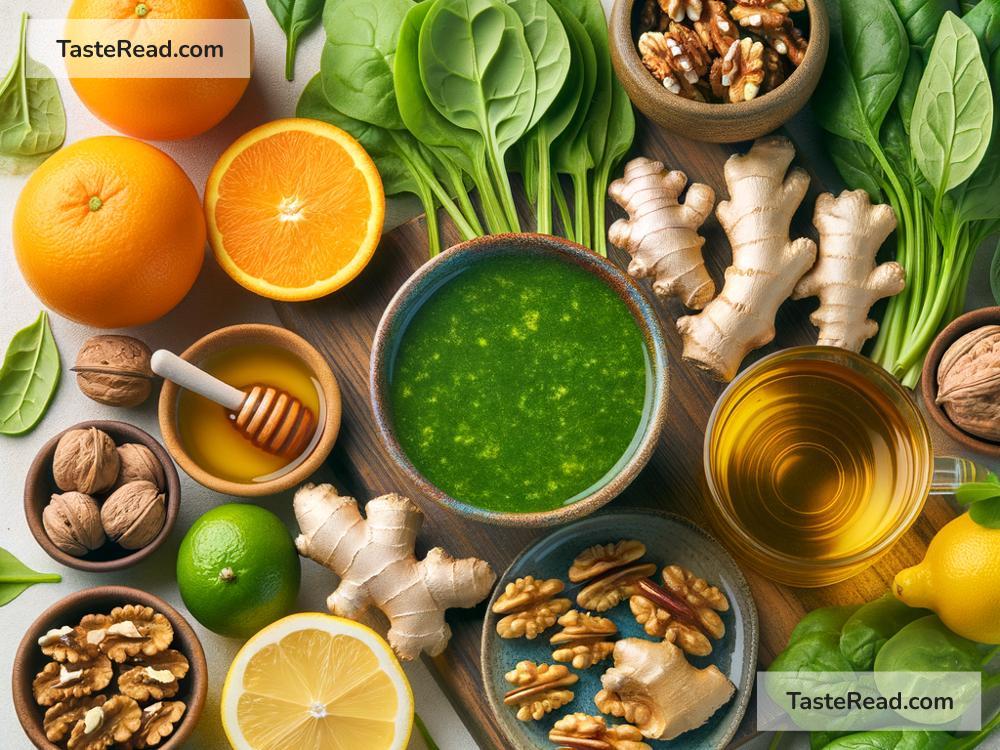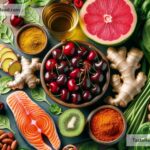Foods That Help Improve Airway Patency
Breathing is something we usually take for granted—until it becomes hard. Whether it’s due to a cold, asthma, allergies, or any other condition, blocked airways can make simple activities, like walking or sleeping, feel incredibly challenging. Thankfully, there are certain foods that can help improve airway patency, a fancy term for “keeping your airways open and clear.” In this article, we’ll explore how your diet can play a role in better breathing and which foods are best for supporting your respiratory health.
How Foods Impact Airway Health
Your airways, which include your nose, throat, and lungs, can sometimes become inflamed or blocked by mucus. This makes breathing harder. Inflammation and mucus production are common culprits behind conditions like asthma, chronic obstructive pulmonary disease (COPD), bronchitis, or even seasonal allergies. While specific medical treatments should always be followed for serious conditions, the foods you eat can complement these treatments by reducing inflammation, thinning mucus, and improving overall respiratory health.
Foods That Help Open Your Airways
There’s no magic food that instantly clears your nose or lungs, but these foods can make a big difference over time:
1. Fruits Rich in Vitamin C
Vitamin C is a powerful antioxidant that fights inflammation and supports immune health. It also helps reduce mucus and congestion in your airways. Fruits like oranges, grapefruits, strawberries, kiwis, and mangoes are packed with vitamin C.
Additionally, eating foods high in vitamin C can help prevent oxidative stress in your lungs triggered by pollutants or toxins.
2. Leafy Greens
Spinach, kale, and Swiss chard are not just good for your overall health—they’re also great for your lungs. These leaves are packed with magnesium, which has been shown to relax the smooth muscles of your airways, making it easier to breathe. Leafy greens are also full of antioxidants that protect against inflammation.
3. Fatty Fish
Fatty fish like salmon, sardines, and mackerel are rich in omega-3 fatty acids. These healthy fats have anti-inflammatory properties that can reduce airway inflammation, keeping your breathing steady and smooth. Omega-3s are especially useful for people who suffer from asthma or COPD.
4. Ginger
Ginger is a natural anti-inflammatory food that has been used for thousands of years to help with respiratory problems. It can relax the airway muscles and reduce swelling in your throat. Plus, it helps break down mucus, making it easier for your lungs to function. Try adding fresh ginger to tea, soups, or stir-fries for an extra health boost.
5. Honey
Honey has natural antibacterial and soothing properties that can help clear your throat and reduce irritation. It’s excellent for reducing coughing and calming inflamed airways. A spoonful of honey mixed into warm water (or tea) is a simple and effective way to feel relief.
6. Garlic and Onions
Garlic and onions are not just flavor boosters—they’re also lung-friendly foods. Both contain substances like allicin, which can help fight infections, reduce inflammation, and lower the risk of mucus buildup. Their natural compounds can also reduce the risk of airway constriction, making them great additions to your diet.
7. Turmeric
Turmeric, a bright yellow spice often used in curries, is a powerhouse of anti-inflammatory properties. Its active ingredient, curcumin, is known for calming inflammation in the airways and lungs. Pair turmeric with black pepper, as this helps your body absorb curcumin better.
8. High-Fiber Foods
Whole grains, oats, beans, and lentils help reduce levels of C-reactive protein (CRP), a marker of inflammation, in your body. Lower inflammation means better lung and airway health. A diet rich in fiber also helps your overall immune system, giving it the extra edge to fight off infections.
9. Herbal Teas
Certain herbal teas like peppermint, chamomile, and licorice root tea are known for their ability to soothe the airways and reduce congestion. Peppermint, for instance, contains menthol, which relaxes airway muscles and makes breathing easier. Herbal teas combined with honey can be wonderfully effective.
10. Water
While it’s technically not a food, water is essential for keeping your airways clear. Staying hydrated helps thin out mucus, making it easier to cough or breathe. Aim for at least 8 cups of water daily, and increase your intake if you live in a dry climate or are feeling congested.
Foods to Avoid
While some foods can improve airway patency, others can make it worse. It’s a good idea to avoid processed or fried foods, as they can lead to inflammation. Dairy products can sometimes increase mucus production, so reduce your intake if you’re feeling congested. Lastly, sugary drinks or snacks can weaken your immune system and increase your body’s inflammatory response.
Conclusion
Improving airway patency is not just about medications and lifestyle choices—it’s also about what’s on your plate. The foods you eat can either help or hinder your ability to breathe clearly. By incorporating these nutrient-rich, anti-inflammatory foods into your diet, you’re giving your lungs and airways the tools they need to stay healthy and open.
Although food alone won’t cure respiratory conditions, making smart dietary choices can complement your treatments and improve your quality of life. So next time you’re planning a meal, think about how the ingredients might affect your breathing—it could make all the difference!


